Why Could Stonehenge By The Next UK Site To Lose Its World Heritage Status
The UN’s heritage body has told ministers that the ancient monument on Salisbury Plain in Wiltshire, England, is at risk of being put on the “danger list” and stripped of its world heritage status, The Guardian reported.
The warning comes after transport secretary Grant Shapps gave the green light for plans to build a dual carriageway tunnel under the landscape, costing £1.7bn, to go ahead.
Highways England proposed the plans to improve traffic flow along the A303 in Wiltshire, the most direct route for motorists travelling between the South East and South West
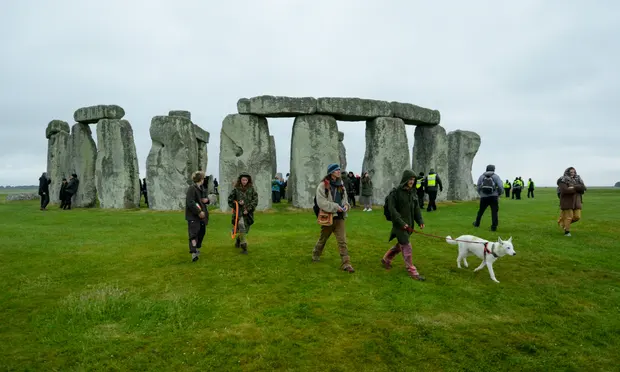 |
| Visitors to Stonehenge for the summer solstice on 21 June. Photograph: Finnbarr Webster/Getty Images |
Planning Inspectorate officials warned the development could cause “permanent, irreversible harm” to the site.
Heritage bodies said on Friday that Unesco would throw a “harsher spotlight” on the UK’s other 31 listed sites, which include the Palace of Westminster and Kew Gardens, after Liverpool became only the third place in nearly 50 years to be stripped of its world heritage status.
Other sites expected to come under greater scrutiny from the UN agency include Stonehenge, Edinburgh’s new and old towns, the Tower of London and Cornwall’s historic mining area, all of which have attracted concerns over controversial developments, Guardian reported.
Chris Blandford, the president of World Heritage UK, complained that there was a “low awareness at the government level” of the importance of the country’s Unesco sites, which rank alongside international gems such as the Taj Mahal and the pyramids of Giza. He said many were critically underfunded and that ministers had shown a “great reluctance to want to make the most of our World Heritage offer”.
He said: “These are places of international significance. They are the best of the best of our cultural heritage. At a time when we’re out [of the European Union] and want to be taken seriously internationally, why not use these incredible assets of such significance to help us do that?”
Unesco chiefs criticised the UK government for failing to “fulfil its obligations” to protect Liverpool’s Victorian waterfront and blamed years of development for an “irreversible loss” to its historic value.
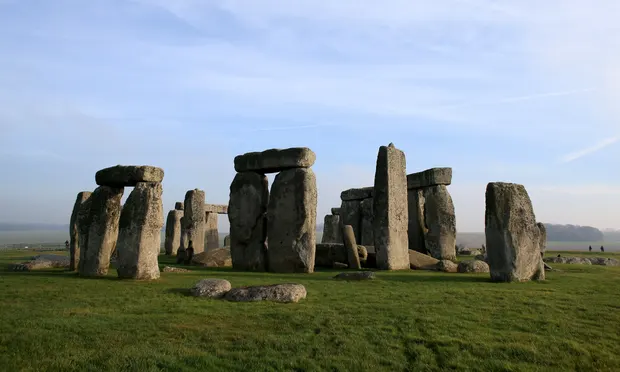 |
| Unesco says Stonehenge will be put on its danger list unless plans for the A303 road tunnel are changed. Photograph: Matt Cardy/Getty Images |
Unesco’s World Heritage Convention, to which the UK is a signatory, encourages governments to establish national foundations to provide ringfenced funding for their cultural assets, but the UK has no such body.
Instead, most world heritage sites are run by cash-strapped local authorities and have seen their funding slashed since 2010 due to the abolition of bodies such as regional development agencies. Given the financial strain, many councils are under increasing pressure to approve contentious developments that adversely affect the historic value of their cultural assets.
Why could Stonehenge lose world heritage site status?
Unesco has confirmed that Stonehenge could be stripped of its world heritage site status, over its concern that a road tunnel, backed by the government, would irreversibly damage an area of “outstanding universal value”.
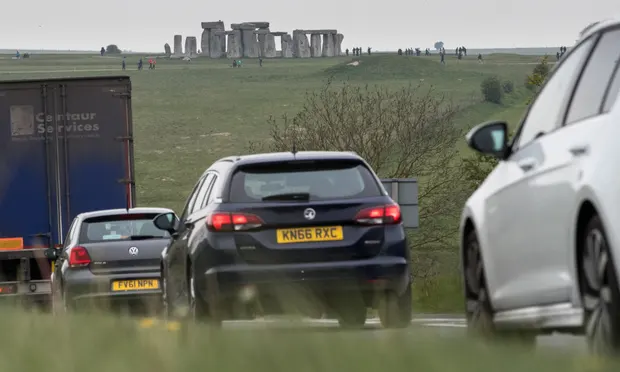 |
| Traffic on the A303 that runs beside the ancient monument. Photograph: Matt Cardy/Getty Images |
A report to Unesco’s world heritage committee setting out concerns about the £1.7bn A303 road tunnel was approved unchanged on Thursday. Unless the designs for the two-mile (3.3km) tunnel are extended and changed, the committee recommends placing Stonehenge on Unesco’s list of world heritage in danger next year.
Last month the high court was told that a decision by Grant Shapps, the transport secretary, to approve the tunnel last November was unlawful because it did not properly consider damage that would be done to a string of prehistoric sites and many thousands of ancient artefacts.
Unesco’s committee found that if the high court confirms planning consent for the tunnel, Stonehenge should be placed on its danger list. It said that despite minor improvements to the original plan, the proposed cut-and-cover tunnel would irreversibly damage an area of “outstanding universal value”.
Shapps ignored advice from a Unesco mission in 2018 and his own planning inspectorate that the tunnel would cause “substantial harm” and should not go ahead. Unesco had recommend a longer, bored tunnel so more of the proposed dual carriageway would be covered.
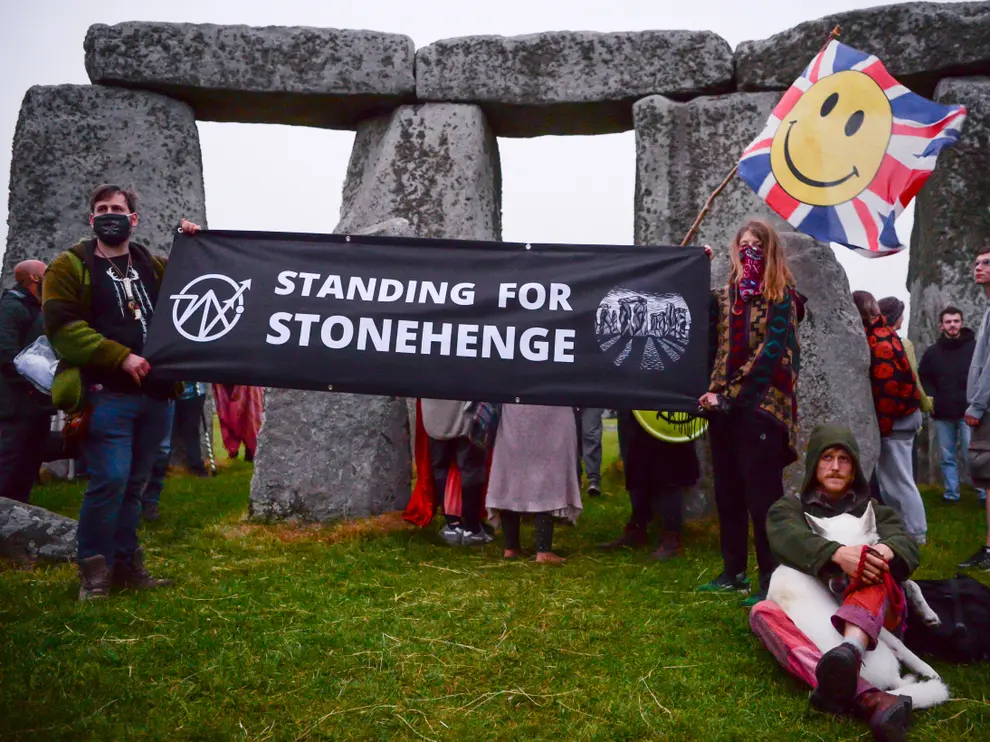 |
| Campaigners pushed back on the decision, including Senior druid Arthur Uther Pendragon (Getty Images) |
The committee expressed dismay that Shapps chose the cheaper option of a short and shallow tunnel. It noted: “The state party [the UK government] determined that the additional landscape benefits would not justify the additional costs … It is regretted that for such an iconic world heritage property, the arguments persist that the perceived benefits of a longer tunnel do not outweigh the costs.”
It added: “The scheme should be modified to deliver the best available outcome for the OUV [outstanding universal value] of the property.”
The committee said a proposed 150m “green bridge” to the west of the proposed tunnel “could not be considered an appropriate solution”. It noted that about 1km of the proposed new dual carriageway would be “exposed in a wide cutting within open landscape”.
A 2019 report by World Heritage UK, which represents the country’s 31 Unesco sites, said they received an average of only £5m each from central government between 2013 and 2018. The annual government spend on the UK’s 27 mainland world heritage sites is £19m, compared with £70m on the country’s 15 national parks, the report found.
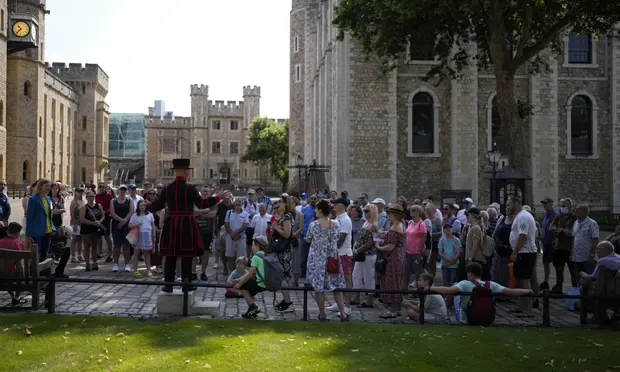 |
| A tour group at the Tower of London this week. Photograph: Matt Dunham/AP |
Stonehenge is expected to be stripped of its status if the two-mile tunnel is built on the site as planned. The transport secretary, Grant Shapps, gave the green light for the scheme in November despite warnings from Unesco that it would have on “adverse impact” on the area’s historic value. The high court is expected to decide within weeks whether the project can proceed following a judicial review by campaigners.
Unesco’s world heritage committee has told ministers that Stonehenge will be placed on its “list of world heritage in danger” – a precursor step to being stripped of its status – if the tunnel goes ahead.
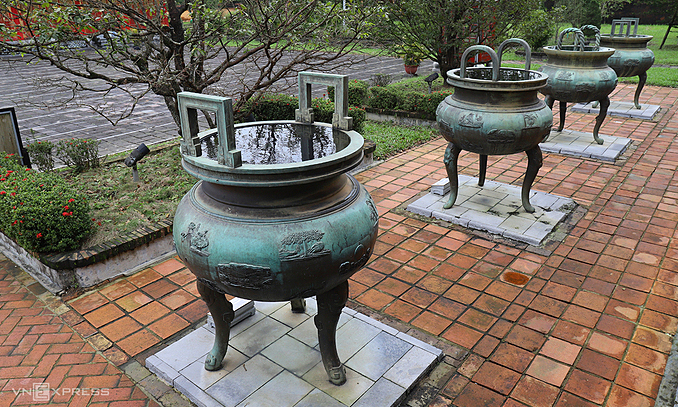 | Hue to seek UNESCO recognition for nine dynastic urns Hue is planning to seek UNESCO's world heritage recognition for its nine dynastic urns, which belonged to Nguyen Dynasty era, Vietnam's last royal rulers. |
 | Halong Bay recognized as World Heritage Site the second time Halong Bay has been recognized twice by UNESCO as a World Heritage Sites, and continues to be the most famous and fascinating destination that attract ... |
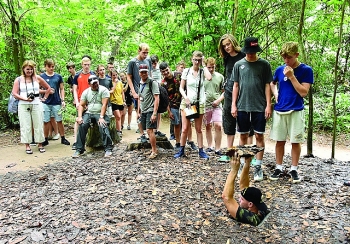 | Cu Chi underground tunnels site seeks UNESCO World Heritage Site recognition The People’s Committee of Ho Chi Minh City is working on a dossier seeking UNESCO World Heritage Site recognition for Cu Chi guerrilla warfare tunnels. |
Recommended
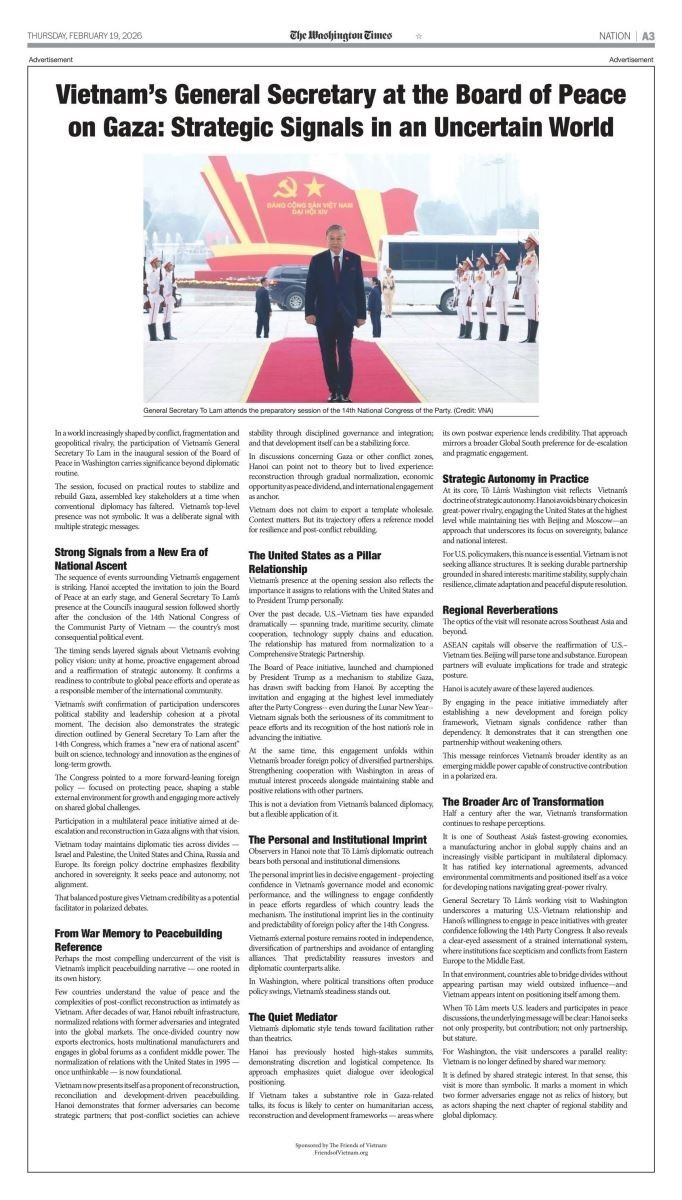 World
World
US Media Commend Vietnam’s Role in Global Peace Efforts
 World
World
Vietnam Officially Becomes Association Country of International Energy Agency (IEA)
 World
World
Key pacts signed as PM Modi hosts France's Macron for plane cooperation
 World
World
India, Canada commit to strengthening bilateral ties, discuss trade
 World
World
AI Summit India 2026 Live Updates: ‘Bringing the world together,’ PM Modi welcomes leaders as India hosts AI summit
 World
World
Safran ready to open India engine production in Rafale deal
 World
World
Nepal interim PM Sushila Karki thanks India for March support
 World
World





